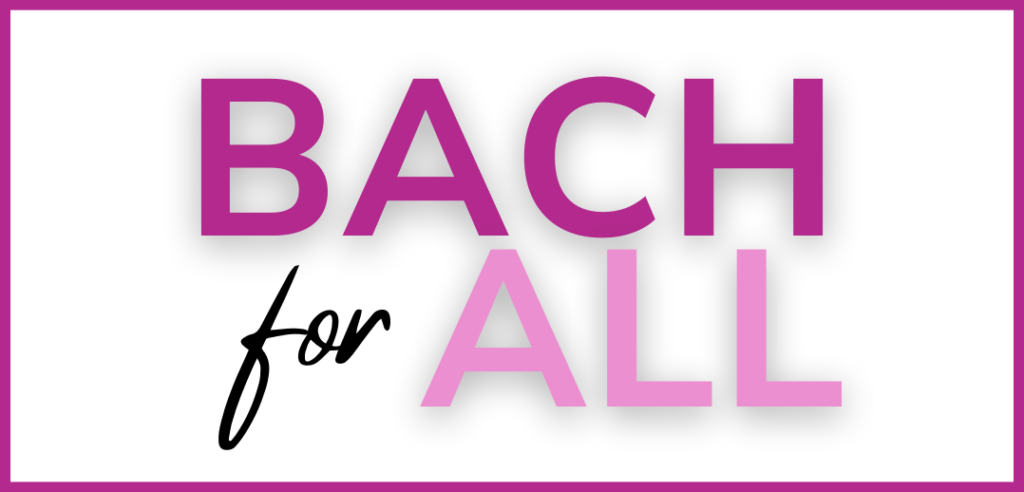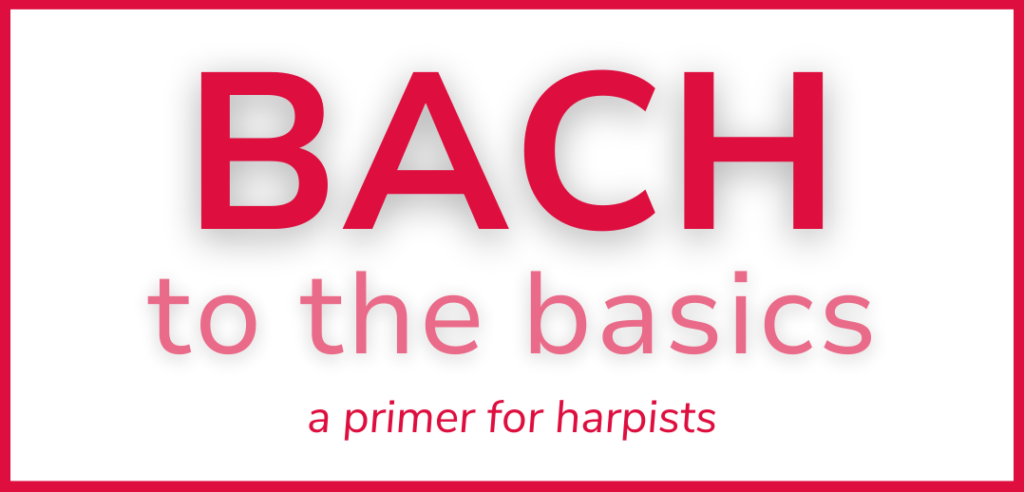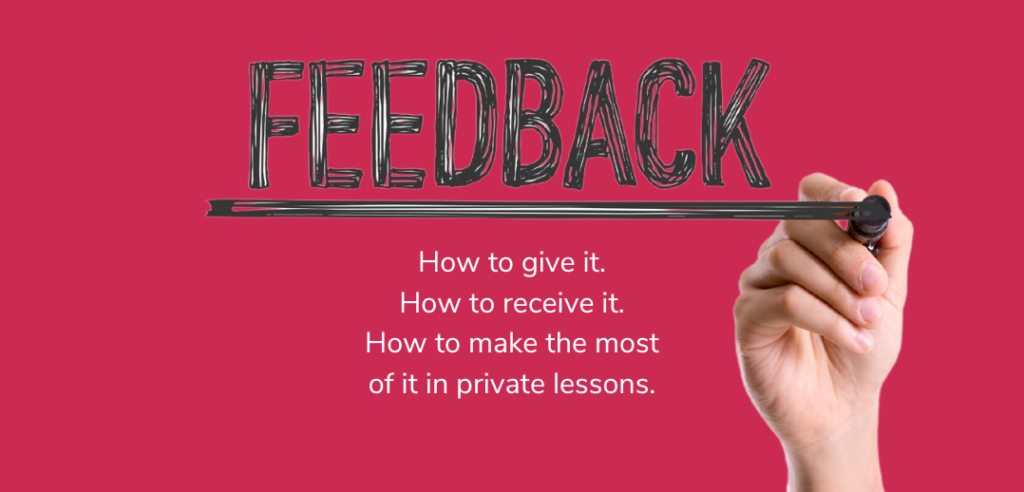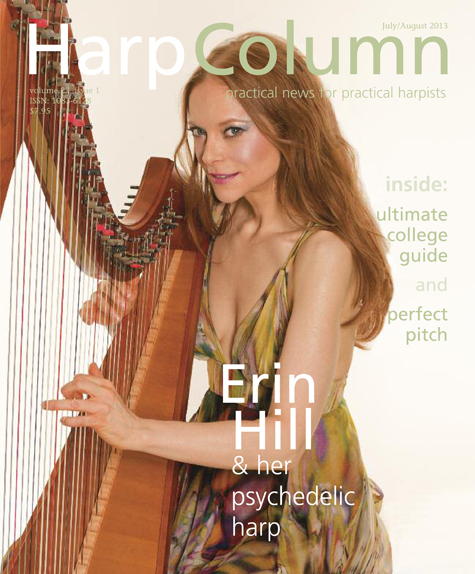If college is on the horizon for you, then these valuable words of wisdom from recent college harp graduates should be required reading.
—by Megan Caulkett
As a recent graduate with a Master’s degree from Rice University and a Bachelor’s from Boston University in harp performance, I’ve thought a lot about things I wish I would have known when I started my college search eight years ago. I loved my schools and I like where I am now, but coming from a small town and a non-musical family, I had no idea what I was doing when applying to colleges.
What do I wish I would have known? What do other recent music grads wish they had known? I talked to harpists, instrumentalists, and singers; people who went to conservatories, large universities, and small colleges; people who have orchestra jobs and those who are no longer pursuing music. It isn’t a time machine or a crystal ball, but if you are gearing up for your college search, learning from the experiences of those who just crossed the finish line of the race you are about to run is the next best thing.
10 • Find a Good Fit
I come from a family of non-musicians, so when I wanted to apply for a music program, we had no idea where to start. While your friends pursuing engineering or business might go right to “U.S. News Best Colleges Rankings” for direction, that’s not the best place to start for musicians. Don’t look for rankings, but instead choose a school that you feel is a good fit for you. Visiting the schools on your list is a must, and remember that universities and colleges can be just as good as conservatories. It is all about where you will feel comfortable. As my friend and fellow harpist Hope Cowan says, “Every school is what you make of it. The school doesn’t matter as much as your attitude and willingness to take advantage of opportunities.”
9 • Requirements and Logistics
Knowing what is required of you in a harp program is important because it can vary so much from school to school. If you are looking at a university, find out what classes outside of music are required. Will this cut into your practice time too much? If you are leaning toward a conservatory, find out if there are classes available outside of music for you to broaden your perspective or pursue a double major. Is there enough academic choice for you to get the education you want?
Another college harp friend, Michael Maganuco, brings up a logistical point. “Harpists depend so much on a school’s facilities, so try following a harp student around to lessons and rehearsals. Be aware of the layout of the music building, elevator accessibility, wheelchair ramps, and moving into the practice rooms.” You will want to know how much of your day will be spent schlepping harps around campus.
8 • Studio Vibe
Your music school friends will probably become your closest friends in college. You will be spending lots of time together, so look at the people in the harp studio and try to get a feel for what it would be like there. Are the students optimistic? Do people seem friendly and easy to talk to? Is there a sense of camaraderie? Are they pleased they came to school there?
Making friends outside of your own studio is necessary for finding chamber groups, networking for performances, and collaborating with the incredible talent that you’re surrounded by, so ask about how different studios interact at the school. I had a core group of friends at Rice that would always play things for each other to get feedback before competitions, recitals, and auditions. They were a crucial part of my learning experience there.
7 • Ensembles
Besides your private lessons, the biggest learning experiences come from ensembles, so it’s important to see what your opportunities are. Look at how much time you will spend in rehearsals each week. Are you going to be playing in orchestra and wind ensemble and have rehearsal every day? What type of orchestral repertoire can you expect to play—standard orchestral works that will help give you experience for later on when you are taking auditions? My friends and I have had numerous discussions about orchestral repertoire. One friend advises chatting with the orchestral manager or, if possible, the music director. “The conductor’s taste in music and level of appreciation for the harp will affect the harpists’ role in the orchestra.”
College is a time for learning new things, and that applies to new genres of music as well. Besides just the standard orchestral pieces, see if there are opportunities for learning other kinds of music. When I arrived at Boston University, I had little experience with modern music, and now that is a genre I am extremely passionate about. Tastes change over time and with experiences, so look at whether the school will expose you to new genres.
6 • Paying the Piper
In an ideal world, money would be no object when making your college choice, but tuition costs are steep and cost has to be a consideration of any conscientious student. As someone who put herself through college and grad school, I can testify to how difficult it can be to graduate with student debt, and, personally, I think it is best to avoid going into debt at all if possible. Be sure to ask what financial aid is provided for current students. Are most of the grad students on full rides? Do the undergrads receive some type of aid or are they paying the full tuition fee?
If you are trying to decide between two programs and feel you would be happy with either teacher, you should consider the financial ramifications of each choice. Not having to work during school will allow you extra practice time. Throughout the time I was at college, I worked a variety of jobs, including playing at weddings, teaching lessons, working for a few catering companies, and folding shirts during my weekly retail shifts at Banana Republic. Loving your college experience is important, but having a large amount of student debt is not only frightening, but can be oppressive to the newly graduated.
5 • Feeling Not So Foreign
Throughout school I met a lot of people from other countries. If you’re an international student, make sure to research which types of aid you are eligible for. Percussionist Pedro Fernandez is from Panama, and he advises international students to talk to fellow musicians from their native country who have studied abroad—ideally in the country you’re looking into. “Seek their advice regarding places they would consider a good choice to study. It also helps to befriend other international students as soon as you get to school. They have been through the same situation so they know what you have to do in terms of paperwork and visa forms.”
4 • Your Home Away From Home
More than classrooms, or the library, or maybe even your dorm room, you will spend the vast majority of your time in the practice rooms, so be sure to scope out the practice room situation. Are the practice rooms soundproof? Are there enough or is there a line to wait for a room every day for 30 minutes? Rice had limited practice rooms, but since there were two harp rooms for three students we didn’t have to wait in line often. Are the rooms welcoming? “It seems like common sense, but I never considered how important it would be to make sure I had a quiet place to concentrate and feel comfortable practicing for hours,” notes Maganuco.
Find out if there is space to keep your personal harp—some schools provide each harp student with her own room, others have a communal harp room where you can keep your harp and practice, and if someone else is practicing you move your harp to a general practice room. Having your own harp isn’t necessary if there are school harps, but it means being able to practice any time you want, as well as the opportunity to play gigs off campus.
All of the musicians that I talked to ultimately felt that three things were most crucial to their experience: career development opportunities, city location, and teacher.
3 • Finding a Job
Even though we all love performing and playing the harp, my flutist chamber partner Garrett Hudson points out, “Music is a business. Just as much as needing to hone your practical skills on your instrument, you also need to develop business savvy at the same time.” Since my friends and I are recent graduates, this is at the forefront of what we are thinking about. As harpists, we are often self-employed freelancers who act as our own manager, accountant, and promoter, so it’s important to understand how to turn those performance skills into a viable career. Will your school give you the opportunity to learn how to do that?
Are there classes or workshops on grant writing and music business? Ask if the school refers community playing opportunities to students. Does your teacher refer people in the studio for solo and orchestral performances in the community? Ultimately, will the school help you establish the skills and network necessary to establish a career after graduation?
2 • Location, Location, Location
Where you go to school is very likely where your career will begin. You will have spent multiple years there, building contacts through the school as well as the community. It is extremely difficult to move to a new city with no school connections and try to break into the gig scene. So consider the school’s location. Major metropolitan area or small college town? Close to home or across the country? You want it to be a good fit as this might be where you set up shop after graduation.
1 • Your Teacher
Without a doubt, your harp teacher will have the biggest impact on your college experience, as well as your career afterwards. Your teacher will become your mentor throughout college and throughout life. While we all want to feel like amazing musicians, it is important to have a teacher who will be honest about your strengths and weaknesses, and push you to improve.
Almost everyone I talked to agrees that having a lesson with the teacher before making any decision is crucial. The teacher will get to hear you play beyond a 10-minute audition, and you can also see her teaching style. It’s a chance for you to see if you two are compatible.
Double bassist David Connor told me, “Meeting and having lessons with the teachers before auditioning for their studios isn’t necessary for success, but if you haven’t done it, you’re putting yourself at a disadvantage to anybody who has.”
Luckily for harpists, there are lots of amazing harp instructors and harp programs around the country. There is no single “good harp school.”
When I was talking to other musicians, no one said, “I’m really glad I went to a conservatory,” or “The university was crucial to my experience.” Instead, everyone talked about their teacher, the orchestra, and what career opportunities were available. It was the individual program and people that made the difference to their happiness and ultimate success. No one school is going to be perfect, but if you can find a teacher that is supportive and works well with you and a school that will prepare you for your career, then music school is a fantastic experience. •















